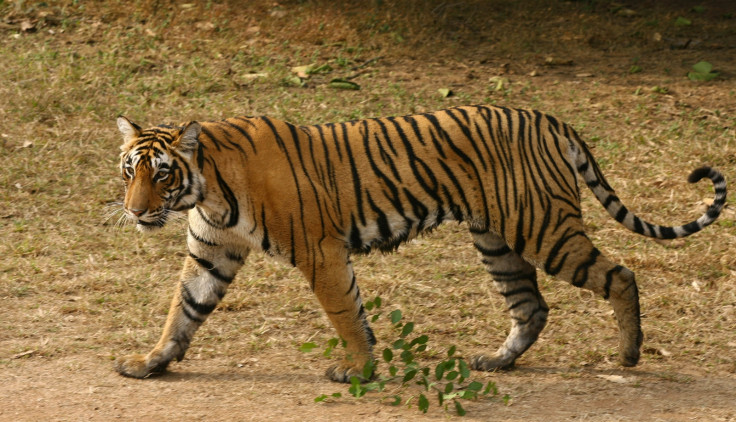Tiger meat and bear paws lure Chinese tourists to Laos resort

Delicacies made from tiger meat, pangolins and bear paws are among the items served at a resort in Laos, according to the Environmental Investigation Agency (EIA).
The food is meant to lure Chinese visitors in what the agency called a "lawless playground" for illegal trade in wildlife.
Not only can customers eat wildlife meat but they can also openly buy endangered species products in the Golden Triangle Special Economic Zone on the border between Laos, Myanmar and Thailand, said the EIA report.
The EIA has called on Laos to immediately set up a task force to tackle the trade and seize all illegal products in the Special Economic Zone, reports AFP.
"China also needs to understand and accept that its legal domestic trade in the skins of captive-bred tigers is doing nothing but driving consumer demand," said Debbie Banks of the EIA.
The London-based group, together with the non-governmental group Education for Nature Vietnam, documented the restaurants' wildlife offerings.
Foreign tourists, mostly the Chinese, are increasingly driving the trade in illegal wildlife products in Laos.
Tiger parts are believed by Chinese to have aphrodisiac or medicinal qualities.
The report said that similar "temples of excess" have also sprung up in border towns of Myanmar which sell rare animals, sex and gambling trips to Chinese visitors.
Chinese demand has driven a thriving smuggling scene in illegal wildlife across much of Southeast Asia. A recent report had cited that 73 tiger trade hubs have been established in Indian districts to facilitate the smuggling across borders into China and parts of south-east Asia.
A Convention on International Trade in Endangered Species of Wild Fauna and Flora (CITES) statement had noted that trafficking in wildlife is seeing a shift from traditional uses in medicines to a display of wealth.
Seizure of tiger specimens have increased in Southeast Asia in recent years. Of 61 live tigers seized in the period 2010 to 2012, 74% were confiscated in three South-East Asian countries – the Lao People's Democratic Republic, Thailand and Vietnam.
China was the leading country in online trade of wildlife animals, according to the International Fund of Animal Welfare.
© Copyright IBTimes 2025. All rights reserved.





















